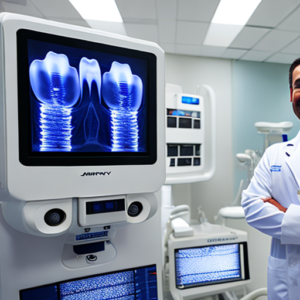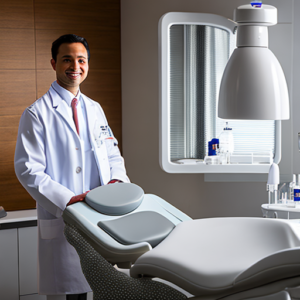Do you experience a sharp, shooting pain when brushing your teeth? Do you dread the feeling of your toothbrush against your gums? Millions of people struggle with sensitive teeth, often caused by enamel erosion, gum disease, or even just individual variations in tooth structure. Understanding why this happens and exploring effective solutions is crucial for maintaining optimal oral health and a comfortable brushing experience. This comprehensive guide delves into the world of electric toothbrushes designed specifically for sensitive teeth, examining how they can provide gentle yet powerful cleaning and help you finally enjoy brushing without discomfort.
What Are Sensitive Teeth?
Sensitive teeth are characterized by a sharp pain or discomfort triggered by certain stimuli. This stimulation usually comes from hot, cold, sweet, or acidic foods and drinks, but most commonly, it’s caused by exposure of the dentinal tubules—tiny channels running from the outer layer of enamel to the pulp within the tooth. These tubules allow external sensations to directly stimulate the nerve ending inside your tooth. Enamel erosion due to aggressive brushing, acid reflux, or teeth grinding (bruxism) is a major contributor, as is receding gums which expose more root surface.
According to the American Dental Association, approximately 20-40% of adults experience sensitive teeth. A study published in the journal “Caries Research” found that individuals who frequently consume acidic beverages like soda or sports drinks were significantly more likely to report experiencing tooth sensitivity. This highlights the importance of preventative measures and targeted oral care for those prone to this condition.
How Electric Toothbrushes Help Sensitive Teeth
Traditional manual toothbrushes often require significant pressure to clean effectively, which is a primary cause of enamel damage and increased sensitivity. Electric toothbrushes, particularly those designed for sensitive teeth, offer several advantages that mitigate this risk. They automate the brushing motion, reducing the need for forceful scrubbing. Furthermore, they often incorporate features specifically tailored to minimize irritation.
Key Features for Sensitive Teeth
- Pressure Sensors: Many models include pressure sensors that alert you when you’re applying too much force. This prevents you from inadvertently damaging your enamel and irritating your gums.
- Soft Bristles: Look for brushes with ultra-soft or micro-fine bristles. These are gentler on sensitive tissues compared to harder bristle options.
- Oscillating-Rotating & Sonic Vibration Technology: Different technologies clean effectively, but oscillating-rotating models provide a gentle cleaning action that’s less abrasive than manual brushing and sonic vibration offers a pulsating effect which can be beneficial for gum health.
- Timer Functions: These ensure you brush for the dentist-recommended two minutes, encouraging consistent and thorough cleaning without over-brushing.
Best Electric Toothbrushes for Sensitive Teeth
Philips Sonicare ProtectiveClean Series
The Philips Sonicare ProtectiveClean Series consistently receives high praise for its gentle cleaning and pressure sensor. It utilizes sonic vibration technology to effectively remove plaque while minimizing the risk of enamel damage.
| Feature | Description |
|---|---|
| Technology | Sonic Vibration |
| Pressure Sensor | Yes, with feedback via light and vibration |
| Brush Heads | Available in various options including Sensitive Clean |
| Timer | 2-minute timer with 30-second intervals |
Oral-B Pro 1500
The Oral-B Pro 1500 is a popular and affordable option that offers oscillating-rotating technology and a pressure sensor. Its rotating head gently cleans teeth without aggressive scrubbing.
| Feature | Description |
|---|---|
| Technology | Oscillating-Rotating |
| Pressure Sensor | Yes, with visual feedback |
| Brush Heads | Includes Sensitive Care brush head |
| Timer | 2-minute timer |
Colgate Hum Smart Electric Toothbrush
The Colgate Hum Smart Electric Toothbrush is a unique option that connects to an app via Bluetooth, providing real-time feedback on your brushing habits and pressure. It uses sonic technology.
| Feature | Description |
|---|---|
| Technology | Sonic Vibration |
| Pressure Sensor | Yes, connected to the app |
| Brush Heads | Available in Sensitive option |
| Timer & Feedback | 2-minute timer and personalized feedback via app |
Selecting the Right Brush Head
Beyond the main toothbrush, choosing the correct brush head is paramount for sensitive teeth. Always opt for soft or ultra-soft bristles. Experiment with different brush heads offered by your chosen brand to find one that suits your specific needs and sensitivity level.
- Philips Sonicare Sensitive Clean Brush Heads: Designed specifically for sensitive gums and teeth.
- Oral-B Gentle Care Brush Heads: Offer a gentle cleaning action with rounded bristles.
- Consider the shape of the brush head – smaller heads can reach difficult areas more effectively.
Tips for Brushing Sensitive Teeth
Using an electric toothbrush is a great start, but incorporating these additional tips will further protect your teeth:
- Brush Gently: Avoid scrubbing or pressing too hard.
- Use Proper Technique: Follow the recommended brushing technique for your chosen brushhead. Most dentists recommend angling the bristles towards the gumline at a 45-degree angle.
- Limit Acidic Foods & Drinks: Reduce your intake of citrus fruits, soda, and other acidic beverages.
- Fluoride Toothpaste: Use a toothpaste containing fluoride, which helps to strengthen enamel.
- Rinse with Water After Eating: Rinsing can help wash away acids that might erode the enamel.
Conclusion
Addressing sensitive teeth doesn’t have to be a painful experience. Electric toothbrushes, especially those featuring pressure sensors and soft bristles, offer a gentle and effective way to maintain oral hygiene. By understanding the causes of sensitivity and implementing targeted strategies – including choosing the right brush head and adopting proper brushing techniques – you can significantly alleviate discomfort and enjoy a healthier, happier smile. Regular dental checkups remain crucial for monitoring your oral health and addressing any underlying issues.
Key Takeaways
- Electric toothbrushes can be highly effective for sensitive teeth due to their automated motion and often, pressure sensor technology.
- Soft bristles are essential – always prioritize ultra-soft or micro-fine options.
- Pressure sensors help prevent enamel damage by alerting you when you’re brushing too hard.
- Consistency is key: Maintain a regular brushing routine with proper technique.
Frequently Asked Questions
- Q: Can electric toothbrushes really make a difference for sensitive teeth? A: Yes, when used correctly and with the appropriate brush head (soft bristles), they can significantly reduce discomfort by minimizing enamel abrasion.
- Q: How do pressure sensors work? A: Pressure sensors detect excessive force applied during brushing and provide feedback – usually through vibration or a visual cue – to alert you to slow down.
- Q: Should I change my brushing technique when using an electric toothbrush? A: Yes! Focus on gentle, circular motions rather than scrubbing, following the manufacturer’s recommendations for your specific brush head.
- Q: How often should I replace my electric toothbrush head? A: Most manufacturers recommend replacing brush heads every 3 months or sooner if the bristles are frayed.
















